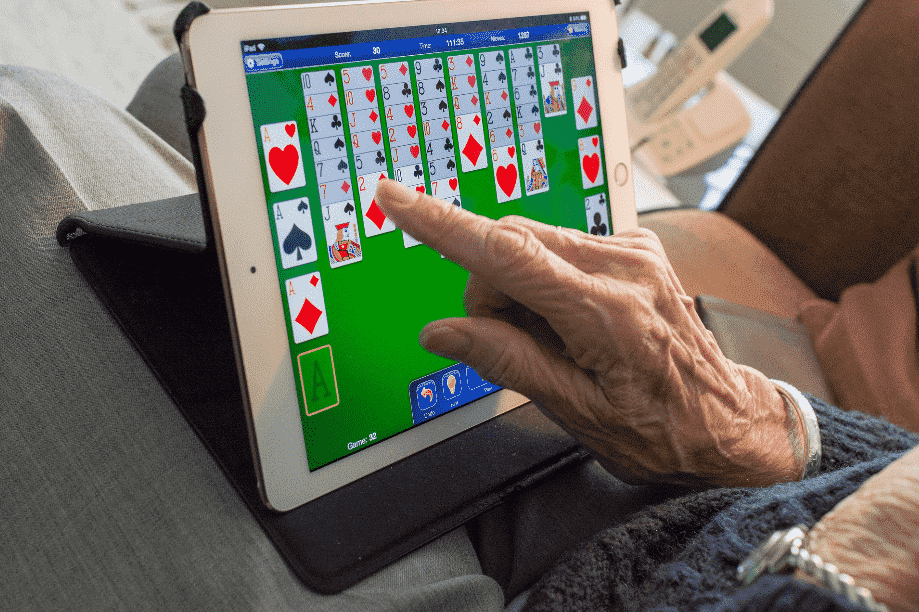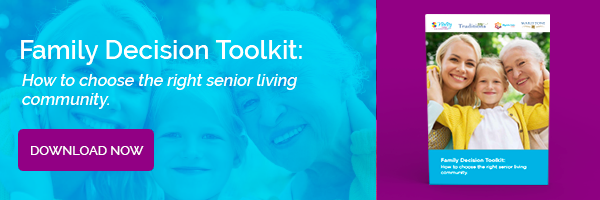Seeing a friend or family member’s face light up when opening a gift they love is one of life’s greatest pleasures. While some are harder to buy for than others, the loving effort is well worth it. Particularly when you’re seeking just the right gift for a loved one with Alzheimer’s disease or dementia. Here are some gift ideas sure to bring about smiles and opportunities for connection, as well as holiday tips for celebrating at a distance this year.
Are you caring for a loved one yourself? At Vitality, we know it isn’t easy. That’s why we created a resource to help make caregiving days go a little more smoothly. The Caregiver’s Checklist: Supporting an Aging Parent covers a wide variety of topics ranging from creating a safe home environment to how to recognize the signs a senior needs more assistance. Download it with our compliments today!

Dementia and the Power of Reminiscence
Reminiscence therapy is frequently used in memory care communities because it’s so beneficial in helping to create a sense of connection, value and belonging as well as a sense of joy and calm for residents with dementia. As verbal communication may be difficult, different mediums are typically used to assist in recollecting past experiences such as:
- Visual – Looking at photographs or objects with meaning and/or painting pictures.
- Aural – Listening to familiar and/or favorite tunes or making music with instruments.
- Smell or taste – Activities using different smells and/or different foods.
- Tactile – Touching objects, feeling textures, painting and/or pottery.
Holiday Gift Ideas with Reminiscence in Mind
But reminiscence isn’t just limited to a therapy setting. It’s a wonderful way to connect with your loved one in a meaningful way and create joyful moments together. That’s why we recommend considering holiday gifts that can aid in reminiscence activities, including:
- Aqua Paint – Reusable water paintings with a variety of different scenes to spark memories.
- Joy for All Companion Pets – Lifelike interactive cats and dogs that pair technology with comfort and help recreate fond memories for pet lovers.
- ViewClix Smart Frame – Digital frame that displays a slideshow of photos uploaded through the app and also auto-answers video calls from family and friends.
- Amazon Echo’s Alexa – This voice assistant can play music, audiobooks, set reminders and answer questions that can help with reminiscing.
- URPOWER Essential Oil Diffuser – Aromatherapy can not only help trigger memories, it can also help reduce anxiety and stress which is extremely beneficial to those with dementia.
Tips for Celebrating Together When Apart
The holidays will definitely look different this year with the CDC advising that families should avoid travel and many memory care communities limiting visitors to prevent the spread of COVID-19. BUT that doesn’t mean you can’t still celebrate with your loved one at a distance.
If your loved one is in a memory care community, talk with the staff about what virtual holiday activities they may be hosting for residents in which families can take part in too. Also, check with the community about scheduling a FaceTime, Skype or Zoom call between your family and loved one during the holiday. You could even send gifts beforehand and open them together!
If your loved one is being cared for at home you might also consider scheduling a holiday parade with friends and other loved ones driving by with signs or decorations on their car. If your family is musically inclined you could even do some caroling, at a distance of course. In addition, you could get creative with your traditional holiday meal by having each family member cooking the dish they normally prepare and delivering it to your loved one so you can still enjoy it as a family.
For more information on memory care, read our Beginner’s Guide to Recognizing Early Signs of Dementia.



